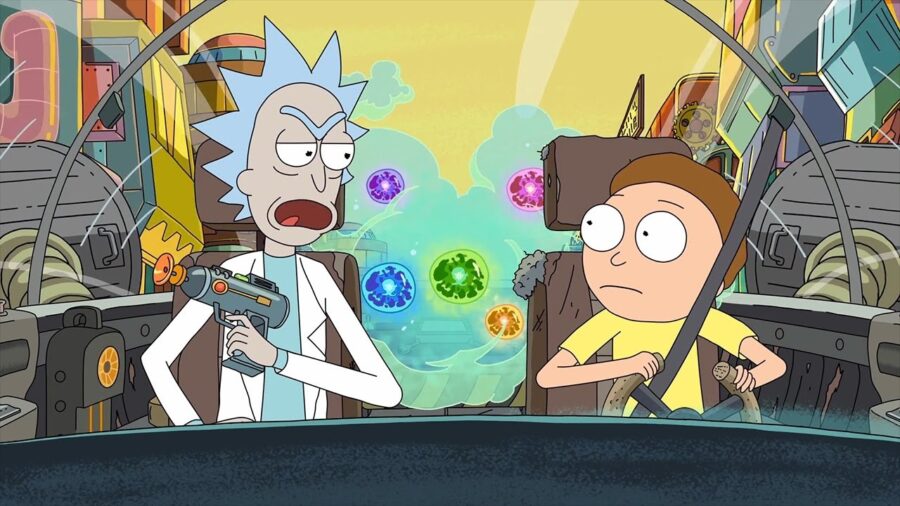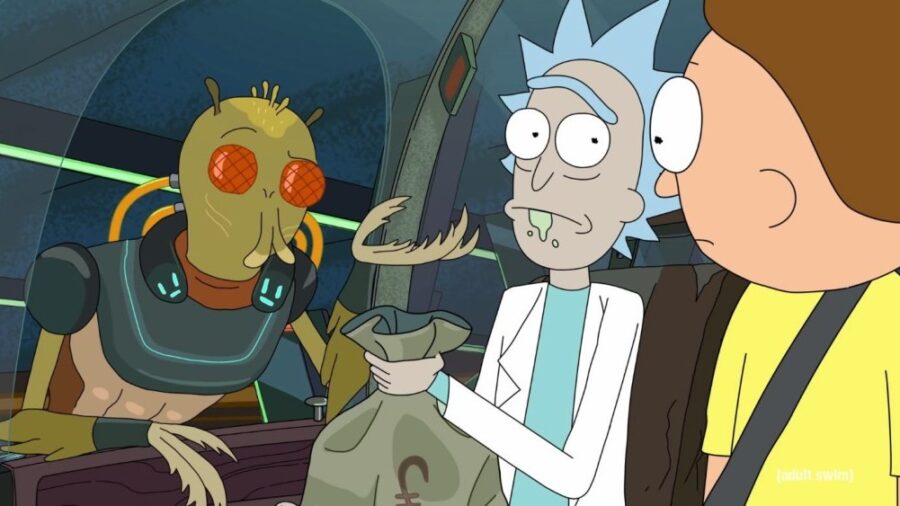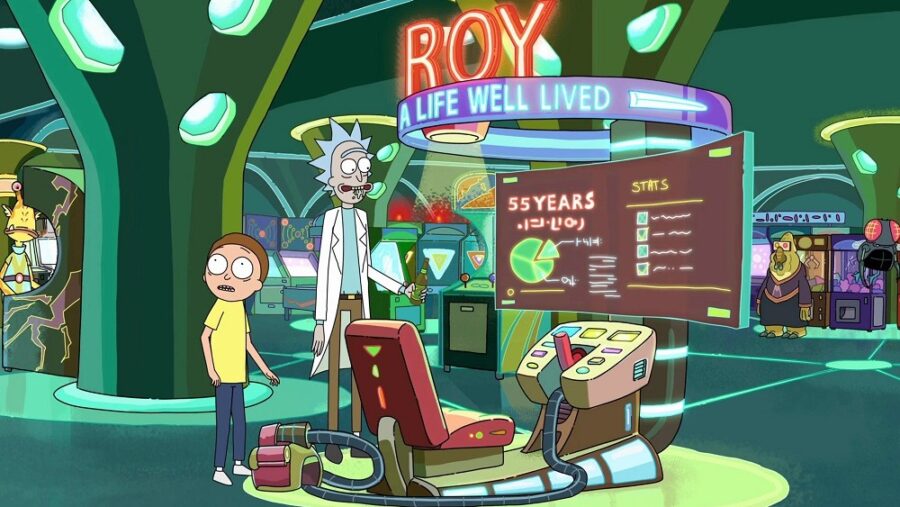Deciding Whether Rick & Morty Is Worth Your Time? Try This One Episode

Rick and Morty is… not for everyone. It can be hilarious — both in smart and extremely juvenile ways. But it also has a dark, often outright nihilistic side to its stories that could completely turn off anyone who’s not willing to entertain the idea that maybe everything in the universe really is completely devoid of meaning.
So, while Season 1, Episode 1 is a perfectly good starting point for those wanting to get into the dimension-sprawling animated sci-fi comedy, if you want to know whether the show is for you, you might want to check out Season 2, Episode 2: “Mortynight Run.”
Rick and Morty is a strange cartoon that’s both smart and juvenile at the same time, but for those curious toc heck it out, we suggest starting with Season 2, Episode 2, “Mortynight Run.”
While there are certainly better episodes than “Mortynight Run” (and far, far worse episodes for that matter), the second season’s second episode provides a good sample of the show’s humor, its penchant for dark situations, and its complete lack of care for anything you might consider sacred, wholesome, or important in life.
The episode starts with Rick, the show’s titular drunk, amoral supergenius, selling a powerful weapon to the assassin Krombopulos Michael so he can take his grandson Morty to what seems to be the alien equivalent to Dave & Busters — a high-tech arcade called “Blips and Chitz.” Meanwhile, Rick has dropped Morty’s dad, Jerry, off at an interdimensional daycare called Jerryboree, which was designed specifically to distract every universe’s version of Jerry and keep him out of Rick and Morty’s hair.

The episode’s action takes off when, after being subjected to the Matrix-like alternate-reality video game Roy: A Life Well Lived, Morty tries to stop Krombopulos Michael from completing his assassination. After accidentally killing the friendly assassin by crashing into him with Rick’s spaceship, Morty takes it upon himself to save Krombopulos Michael’s target — a gaseous lifeform from another dimension who takes on the name “Fart.”
Morty spends the rest of the episode trying to get the musical, telepathic, matter-altering creature to a wormhole that will return him to his home dimension.
“Mortynight Run” guest-stars Jemaine Clement, part of the band Flight of the Conchords, as an extradimensional alien named Fart.
On the whole, the episode is an exercise in everything that Rick and Morty is known for — absurdism, vulgarity, and completely undermining fundamental ideals that you didn’t even realize existed to be undermined. The episode questions how much noble intentions matter in the face of disastrous results, whether you should step in against even the most seemingly-repulsive actions, and whether it might be better to give up on trying to do what’s right and just enjoy playing video games.
The episode is helped by the presence of actor/musician/comedian Jemaine Clement, who plays Fart in the episode. A member of the New Zealand-based musical comedy duo Flight of the Conchords, Clement’s deadpan performance and bizarre, David Bowie-esque musical stylings seem oddly amiable at first, but in a way that doesn’t seem too out-of-nowhere when Fart’s less-than-noble intentions are made clear.
In a brilliant twist that is reminiscent of many of Rick & Morty’s better episodes, the lyrics of the psychedelic feel-good song “Goodbye Moonmen” — sung by Fart multiple times throughout the episode — take on a much more sinister tone when revisiting them after the episode’s end.

Of course, Rick & Morty never bothers to be subtle in its nihilistic messaging — a fact that’s made very clear by the end of “Mortynight Run.” Rather than let the events of the episode speak for themselves, the episode relies on Rick to drive the point home about how much of an utterly counterproductive waste Morty’s seemingly-noble actions were.
For a show with a reputation for intelligent plots and themes, the episode demonstrates how it doesn’t trust its audience to demonstrate any intelligence on its own.
Rick and Morty never bothers to be subtle in its nihilistic messaging — a fact that’s made very clear by the end of “Mortynight Run.”
Ultimately, whether or not you like “Mortynight Run” will give you a good insight into whether you’ll like the show as a whole. It’s a cartoon willing to challenge your deeply-held ideals, but it’s also one with a firm idea about how its episodes should be interpreted — and it won’t hesitate to drive its point home.
If you’re willing to find humor in the desecration of everything you once found good and holy, you’ll probably have a good time — but if not, then Rick and Morty is a show you should pass on.










